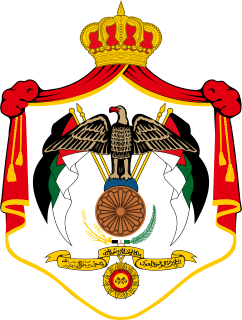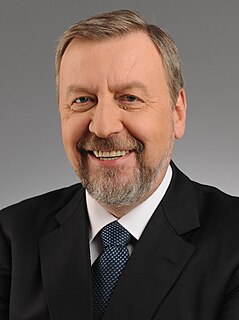Regular elections in Croatia are mandated by the Constitution and legislation enacted by Parliament. The presidency, Parliament, county prefects and assemblies, city and town mayors, and city and municipal councils are all elective offices. Since 1990, five presidential elections have been held. During the same period, nine parliamentary elections were also held. In addition, there were six nationwide local elections. Croatia has held two elections to elect 11 members of the European Parliament following its accession to the EU on 1 July 2013.

Elections in Antigua and Barbuda take place in the framework of a parliamentary democracy.

Elections in Ukraine are held to choose the President, Verkhovna Rada, and local governments. Referendums may be held on special occasions. Ukraine has a multi-party system, with numerous parties in which often not a single party has a chance of gaining power alone, and parties must work with each other to form coalition governments.

Belarus elects on national level a head of state - the president - and a legislature. The president is elected for a five-year term by the people. The National Assembly has two chambers. The House of Representatives has 110 members elected in single-seat constituencies elected for a four-year term. The Council of the Republic has 64 members, 56 members indirectly elected and eight members appointed by the president.

Elections in Benin take place within the framework of a multi-party democracy and a presidential system. Both the President and the National Assembly are directly elected by voters, with elections organised by the Autonomous National Electoral Commission (CENA).
Elections in Hungary are held at two levels: general elections to elect the members of the National Assembly and local elections to elect local authorities. European Parliament elections are also held every 5 years.

Elections in Kuwait are held for both the National Assembly and for the Municipality. Kuwait's constitution calls for elections to the unicameral National Assembly at a maximum interval of four years. Elections are held earlier if the Constitutional Court or Emir dissolve the parliament.

Elections in Lithuania gives information on elections and election results in Lithuania.

Parliamentary elections were held alongside presidential elections in Croatia on 2 August 1992, the first after independence and under the new constitution. All 138 seats in the Chamber of Representatives were up for election. The result was a victory for the Croatian Democratic Union, which won an absolute majority of 85 seats. Voter turnout was 75.6%.

The Election for the 7th Legislative Yuan of Taiwan was held on January 12, 2008. The results gave the Kuomintang (KMT) and the Pan-Blue Coalition a supermajority in the legislature, handing a heavy defeat to then-President Chen Shui-bian's Democratic Progressive Party, which won the remaining 27 seats only. The junior partner in the Pan-Green Coalition, the Taiwan Solidarity Union, won no seats.

The Belarusian parliamentary election, 2008 was held in Belarus on 28 September 2008. The 110 seats in the House of Representatives were at stake.

Parliamentary elections were held in Belarus on 14 May 1995 to elect the thirteenth Supreme Council. The elections took place alongside a multi-question referendum, although several further rounds of voting were required on 28 May, 29 November and 10 December. The majority of candidates elected were independents, although 62 seats remained unfilled due to insufficient voter turnout. A total of 2,348 candidates and 22 parties contested the election, around a thousand of which were independents. After the planned two rounds, only 119 of the 260 seats had been filled due to turnouts being too low in some areas. As this was well short of the 174 needed for a quorum, an additional two rounds were necessary. By the fourth round a quorum was reached, and although further rounds of voting were planned for 1996 to fill the remaining seats, following the constitutional amendments made following the referendum and the subsequent formation of a new National Assembly, they were not held.

Parliamentary elections were held in Libya on 25 June 2014 for the House of Representatives. Whilst all candidates ran as independents, the elections saw nationalist and liberal factions win the majority of seats, with Islamist groups being reduced to only around 30 seats. Election turnout was very low at 18%.

Shura Council elections were held in Egypt between 29 January and 22 February 2012. The Freedom and Justice Party emerged as the largest party in the Council, winning 105 of the 180 elected seats.

Early general elections were held in Jordan on 23 January 2013. Voter turnout was reported to be 56.6%.

A snap election of the Verkhovna Rada took place on 26 October 2014.

General elections were held in Bahrain on 22 November 2014, with a second round on 29 November in constituencies where no candidate received at least 50% of the vote. The elections were boycotted by the Shiite Islamist opposition. The government announced the voter turnout as 52.6%, although the opposition claimed it was only 30%.

Legislative elections were held in Mongolia on 29 June 2016. The governing Democratic Party lost to a landslide victory of the Mongolian People's Party, retaining only 9 of 76 seats in the Great Khural. While they just lost under 2% of the popular vote, a new electoral law passed by the Democratic Party itself when in Government to promote two-party politics, together with a 14% rise of the MPP, ended up making them lose 25 of 34 seats. As a result, the MPP secured a supermajority with 65 of 76 seats.

Parliamentary elections were held in Belarus on 11 September 2016.

General elections were held in Bahrain on 24 November 2018, with a second round in some constituencies on 1 December. Considered to be sham elections, they followed a crackdown on dissent that included prohibiting members of dissolved opposition groups from running.





















